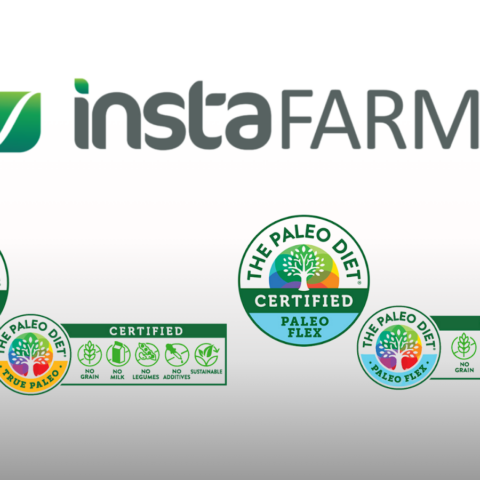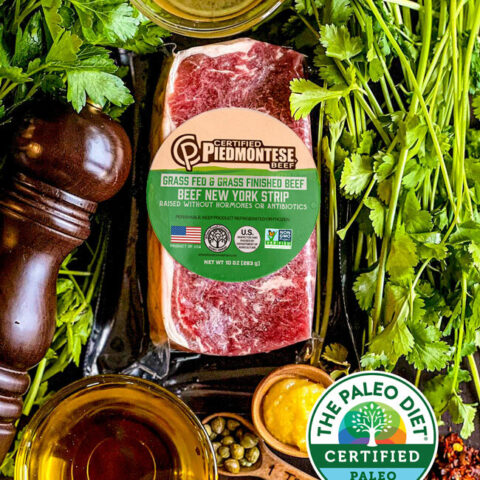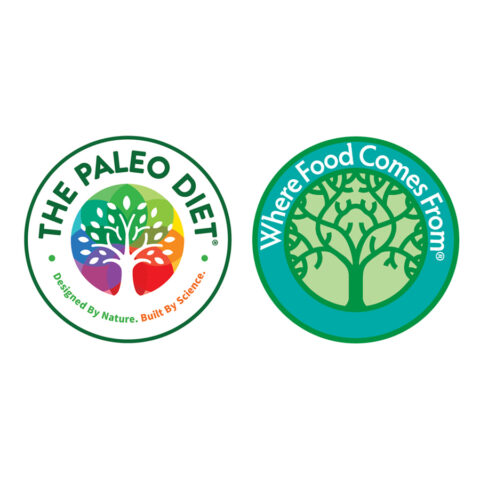Why Food Certification Matters

Americans are savvier grocery shoppers than ever.
They are increasingly on the hunt for food products that can meet their individual health and dietary needs. And they are doing this by looking to more robust food labeling for clear guidance on what they can trust.
In 2019, 38% of Americans said that they follow a specific diet—a 171% increase from just two years earlier—A trend that we can expect to continue.(1) About 90% of these health-conscious shoppers say they always or sometimes search product labels to ensure the foods conform to their needs.(2)
Concern for health is driving specific dietary needs
Inflammatory and chronic conditions such as high blood pressure, obesity, heart disease, diabetes, metabolic syndrome, and many cancers are on the rise, and people are increasingly aware that poor nutrition is at its core.
One third of American households have reported at least one member with food allergies, intolerances, or sensitivities.(1) So, while the focus of diets used to be on weight loss, more and more, consumers are choosing dietary approaches based on health.
The problem is that most consumers don’t know what is and isn’t healthy, and vague product labels only add to the confusion. In fact, only 37% of shoppers say that they understand what “natural” and “healthy” food claims mean. And while 47% of shoppers say someone in their household follows a diet or health-related program, they are spread across a host of dietary movements. These include low carb (14%), high protein (13%), heart-healthy (11%), high-fiber (9%), gluten-free (8%), dairy-free (7%), vegetarian/vegan (6%), Weight Watchers (5%), ketogenic diet (4%), and the Atkins diet (4%).(1)
In other words, Americans are on a variety of different food plans – and they’re looking for easy ways to shop for their individual needs.
It is worth noting that many of these diets, including the low carb movement and keto diets, have their roots in The Paleo Diet®. In fact, publication of The Paleo Diet book by Dr. Loren Cordain in 2002 helped build public awareness of celiac disease, gluten-free diets, and a lower-carbohydrate approach. Because The Paleo Diet is at the root of several popular dietary approaches, it makes sense for consumers to select Paleo options at the store in order to satisfy many of the current popular dietary approaches all at once.
Why is product labeling so important?
It’s easy to get overwhelmed by product names, manufacturer claims, new food fads and whether they fit with your specific dietary approach. Consumers need to feel confident about their food choices, and they are increasingly relying on food labeling to help them make purchasing decisions that affect their health.
Consumers have learned to trust good food labeling when they see it. This has been driven in part by the FDA nutrition facts label. Consumers have become accustomed to clear informational labeling and now expect it. In 2018, 82% of shoppers said that they prefer to get information about products from the packaging.(1) The vast majority of Americans – 71% of all adults – make purchasing decisions based on the nutrition and ingredient labels.(3)
The problem is that standardized food labeling does not meet the needs of the increasing number of shoppers who have specific dietary needs. Of those who have a health-related need, 83% reported that it was somewhat to extremely challenging to tell if certain products conformed to their health needs based on the standard labeling.(1) About half of all American shoppers said that food product labels were too confusing, too hard to read, or labeled inappropriately for their needs.(1)
For food manufacturers, it is increasingly important to show consumers that products meet their specific dietary needs. The best, easiest way to do this to get food products certified.
How adding third-party verified certifications to your labeling can help your customers
Certifications can help cut through the noise of the standard food label and provide the additional information consumers need. Over half of Americans now actively look for non-GMO certification on food packaging.(4) 52% of Americans say that knowing where foods come from is important and 43% say they want to know how the foods are produced—and neither concern is addressed by the FDA nutrition facts label.(1)
Product labeling is increasingly insufficient for today’s health-conscious shoppers. Third-party verified food certification offers convenience for consumers who have special dietary needs or health concerns, and they establish trust when affiliated with a trusted certifying brand name. These labels are so powerful that 74% of grocery shoppers said they would switch from a brand they usually buy to another brand that provides more information beyond the nutrition label.(1)
The value of certifications is simple. Certification demonstrates authority, builds trust, and provides clarity when standard food labels fall short. Grocery shoppers are increasingly trending towards healthier choices, and certifications are vital to helping consumers feel confident in their choices.
How We Can Nurture a Healthier World Together
Our vision at The Paleo Diet, LLC is to help nurture generations of people who are naturally strong and healthy because they make sound health choices. Our mission is to transform the understanding and practice of healthy nutrition. One way we do this is through food certification.
The Paleo Diet® has developed two all-new Paleo food certification standards, TRUEPALEO™ and PaleoFLEX™.
These new certifications distill decades of nutrition research by Dr. Loren Cordain and his colleagues into two eye-catching certifications that identify foods as healthy, based on the science of Paleolithic nutrition.
Dr. Cordain’s industry-leading criteria carefully consider ingredients and additives, GMO/bioengineered foods, organic production practices, environmental sustainability, animal welfare and feeding, and more.
One of the easiest ways to help people make healthier food choices is to simply show them that the food has been scientifically verified as healthier. Seeing The Paleo Diet food certification on a product label will clearly identify foods that are better for you. Our new food certifications will make it easier for consumers, manufacturers, and retailers to identify better-for-you foods on crowded store shelves and online.
Contact us at partnerships@thepaleodiet.com or learn more about food certification at certification@thepaleodiet.com.
The Paleo Diet® is a registered trademark of The Paleo Diet, LLC. TRUEPALEO™ and PaleoFLEX™ are trademarks of The Paleo Diet, LLC.
References
1 International Food Information Council Foundation, 2019 Food & Health Survey.
2 Food Marketing Institute and Label Insight Transparency Imperative Report, 2018.
3 Pew Research Center, The New Food Fights, 2016.
4 Pew Research Center, 2020.
Trevor Connor, M.S.
Dr. Loren Cordain’s final graduate student, Trevor Connor, M.S., brings more than a decade of nutrition and physiology expertise to spearhead the new Paleo Diet team.
More About The Author



